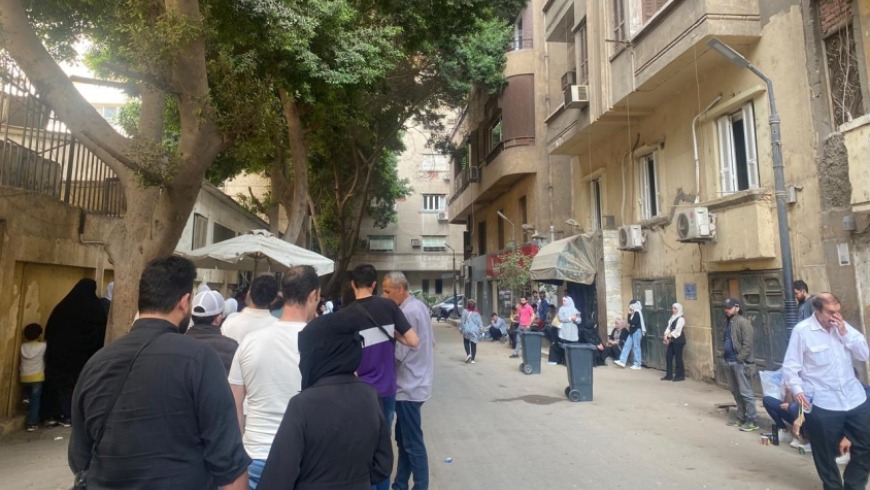In early August, the UNHCR in Egypt excluded a number of Syrians from receiving food aid, marking the second time in less than a year that the agency has reduced the number of Syrians benefiting from aid. A similar reduction occurred in October 2023, both times citing a lack of funding as the reason.
The affected Syrians were notified via text message that the July aid distribution would be their last. The UNHCR explained that their files did not meet the criteria for receiving WFP assistance.
According to several Syrians who were excluded from the aid program, the UNHCR’s text messages stated that the decision was made after careful consideration and re-evaluation of all cases to ensure that aid reaches the most needy families.
As of the latest statistics, approximately 150,000 Syrians are registered with the UNHCR in Egypt, though only a portion of them receive food aid. In contrast, the total number of Syrians in Egypt is estimated to exceed 1.5 million, according to official statements.
This exclusion decision coincides with the challenges faced by expatriates and residents in Egypt, including Syrians, in renewing their tourist residency permits. These challenges have increased the demand for registration with the UNHCR to obtain an “asylum card” (yellow card).
Following the expiration of the Egyptian government’s deadline for expatriates and foreigners to regularize their legal status at the end of June, Cairo has imposed new conditions for the renewal of tourist residency, including the requirement to obtain a new entry stamp to the country.
Government policies have driven many refugees to seek registration with the UNHCR. Due to the increased demand, it now takes over a year to secure an appointment to register with the agency.
Additionally, Egypt’s economic difficulties, including inflation and rising prices, are exacerbating the situation.
The suffering of excluded families
Many Syrians are questioning on Facebook pages dedicated to the Syrian community in Egypt whether the exclusion from food aid is a final decision or if the UNHCR might reconsider it. Most posts suggest that the decision is final.
Ahmed Badawi, a 45-year-old Syrian and head of a family living in Cairo, works as a waiter in a restaurant. He shared, “I used to receive a salary and a food aid card, but my name was excluded in the first batch last October.”
The “aid card” is a voucher issued by the UNHCR to refugees, which is recharged monthly with the allocated aid amount.
Ahmed added that the cut in aid has significantly increased his economic burden. “I have children in school, my rent has gone up, and my salary barely lasts until the middle of the month. The aid helped cover part of the expenses.”
Like Ahmed, many Syrians have been excluded from receiving aid, though no official statistics are available on the exact number of those excluded or still receiving aid.
Random Evaluation
Assistance plays a crucial role in the lives of vulnerable families, especially widows, divorced women, and the elderly who lack a breadwinner and are unable to work. It is also vital for those who are employed, as wages are low and income levels often do not cover the cost of living.
According to the UNHCR, the decision to grant food assistance is based on several factors, including the financial situation, number of family members, access to other forms of assistance, protection risks, and medical conditions, among many other considerations outlined in their regulations.
All cases are then evaluated to identify households most in need—those that fall below the poverty line and are most at risk.
However, some Syrian refugees believe the assessment process is inconsistent, arguing that some individuals who are in dire need of additional income have been unjustly denied assistance.
This article was translated and edited by The Syrian Observer. The Syrian Observer has not verified the content of this story. Responsibility for the information and views set out in this article lies entirely with the author.


